
The Sacred Heart of Karbala: A Spiritual Odyssey
Karbala, a city in Iraq, holds a special place in the hearts of millions around the world. Known for its profound historical and religious significance, Karbala is a major destination for pilgrims and tourists alike. The city is most famous for the Battle of Karbala in 680 AD, which is commemorated annually during the holy month of Muharram. The battle's legacy and the martyrdom of Imam Hussein have made Karbala a symbol of sacrifice and steadfastness. Visitors to Karbala are often drawn to the majestic Imam Hussein Shrine and the adjacent Al-Abbas Shrine. These iconic landmarks are adorned with intricate designs, golden domes, and reverent atmospheres that invite deep reflection. The city's streets come alive with the rhythm of prayer and the hustle of markets selling religious artifacts, spices, and traditional garments. Each corner of Karbala tells a story, making it an enriching experience for history buffs and spiritual seekers alike. Karbala is also a gateway to other significant sites in Iraq. The tranquil banks of the Euphrates River, the ancient city of Babylon, and the vibrant capital of Baghdad are all within reach. Whether you're walking through the bustling bazaars or standing in awe of the architectural splendor, Karbala offers a unique blend of the past and present, making it a must-visit destination for anyone exploring the Middle East.
Local tips in Karbala
- Dress modestly and respectfully, especially when visiting religious sites.
- Visit during the holy month of Muharram to witness the Ashura commemorations.
- Hire a local guide to gain deeper insights into the city's historical and religious context.
- Stay hydrated and be prepared for hot weather, especially in the summer months.
- Try local specialties like Masgouf (grilled fish) and traditional Iraqi sweets.
The Sacred Heart of Karbala: A Spiritual Odyssey
Karbala, a city in Iraq, holds a special place in the hearts of millions around the world. Known for its profound historical and religious significance, Karbala is a major destination for pilgrims and tourists alike. The city is most famous for the Battle of Karbala in 680 AD, which is commemorated annually during the holy month of Muharram. The battle's legacy and the martyrdom of Imam Hussein have made Karbala a symbol of sacrifice and steadfastness. Visitors to Karbala are often drawn to the majestic Imam Hussein Shrine and the adjacent Al-Abbas Shrine. These iconic landmarks are adorned with intricate designs, golden domes, and reverent atmospheres that invite deep reflection. The city's streets come alive with the rhythm of prayer and the hustle of markets selling religious artifacts, spices, and traditional garments. Each corner of Karbala tells a story, making it an enriching experience for history buffs and spiritual seekers alike. Karbala is also a gateway to other significant sites in Iraq. The tranquil banks of the Euphrates River, the ancient city of Babylon, and the vibrant capital of Baghdad are all within reach. Whether you're walking through the bustling bazaars or standing in awe of the architectural splendor, Karbala offers a unique blend of the past and present, making it a must-visit destination for anyone exploring the Middle East.
When is the best time to go to Karbala?
Iconic landmarks you can’t miss
Holy Shrine Of Imam Hossain
Experience the spiritual heart of Karbala at the Holy Shrine of Imam Hussein, a beacon of faith and history.
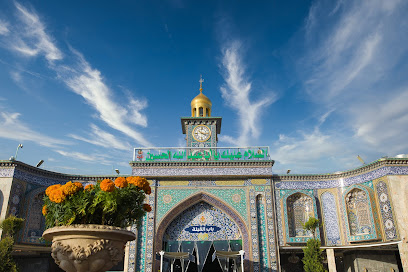
Holy Shrine Of Abu Fadhl Al-Abbas
Experience the spiritual heart of Karbala at the Holy Shrine of Abu Fadhl Al-Abbas, a symbol of devotion and architectural grandeur.
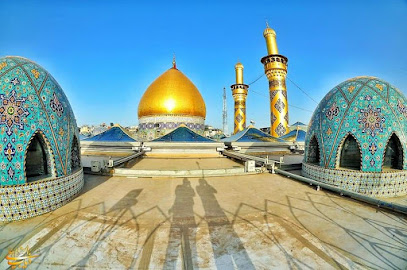
Alqamae Tributary Of Furat
A historical landmark in Karbala, the Alqamae Tributary marks the spot of Al-Abbas' martyrdom, a testament to faith and sacrifice.
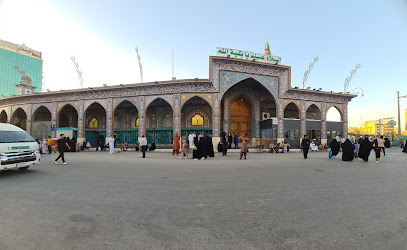
Nawaris Karbala Amusement park
Discover fun and excitement for all ages at Nawaris Karbala Amusement Park, where thrilling rides and vibrant entertainment create unforgettable memories.
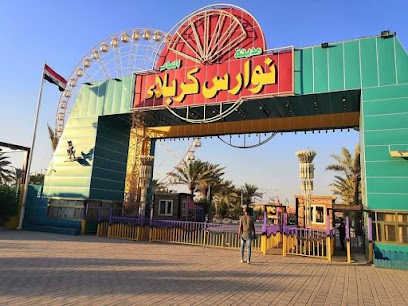
Nawara tourist city property
Discover a green oasis in Karbala: Perfect for relaxation, family fun, and cultural experiences amidst stunning landscapes.
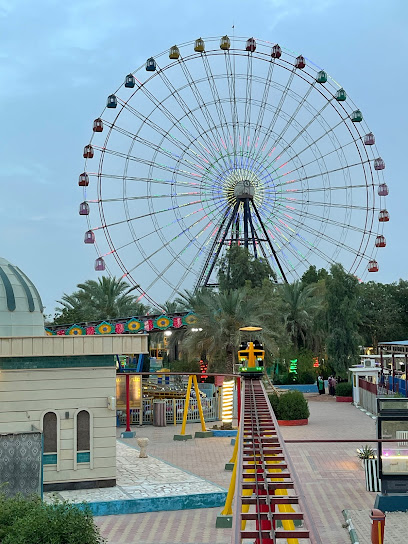
Toot Fresh - Karbala
Indulge in delightful ice cream and chocolate creations at Toot Fresh, the sweetest escape in the heart of Karbala. Open daily until late!
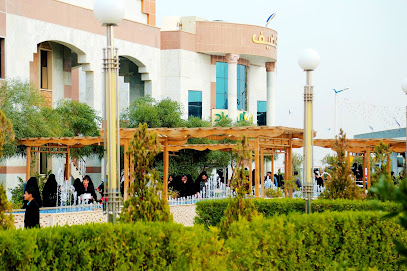
Hussein, the Great Park
A tranquil green space in Karbala offering relaxation, recreation, and a connection with nature for families and travelers.
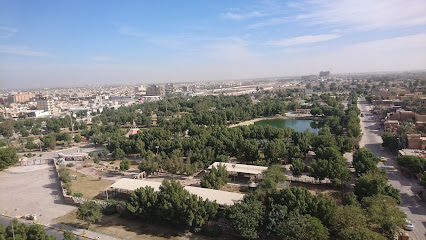
AL SINDBAD THEME
Experience thrilling rides & family fun at AL SINDBAD THEME in Karbala. Open daily 1 PM-12 AM, a perfect spot for tourists seeking unforgettable memories.
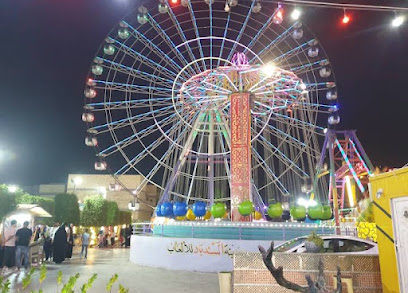
White arch
Discover the White Arch in Karbala, a stunning landmark showcasing Iraq's rich cultural heritage and architectural beauty. A must-see destination!
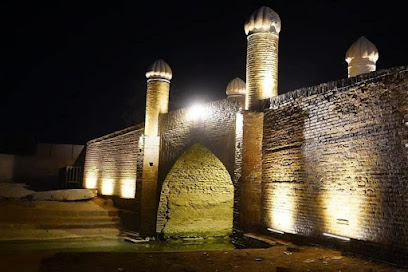
قطارة الامام علي ع
Discover the legendary spring in the Karbala desert, believed to be created by Imam Ali (AS), a site of faith and natural wonder.
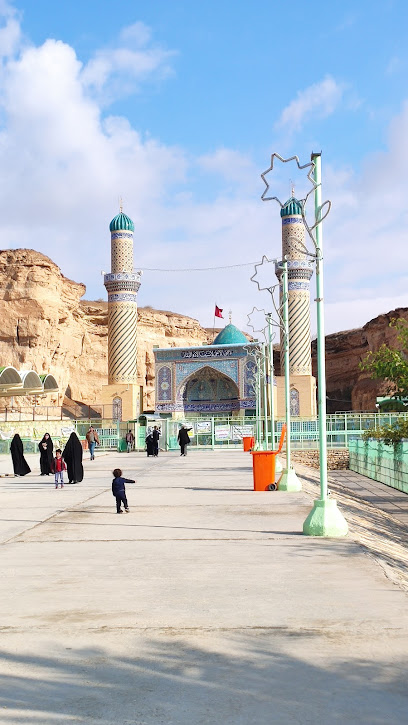
Al-Ukhaidir Fortress
Explore Al-Ukhaidir Fortress: A stunning example of Abbasid architecture and a key historical site in the Iraqi desert, south of Karbala.
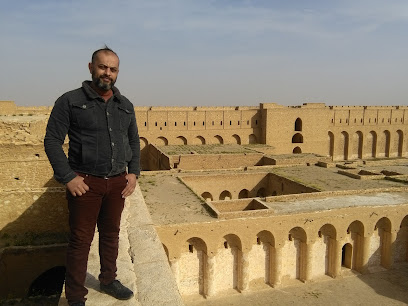
Mosque Imam Muhammad al-Jawad
Experience the spiritual heart of Karbala at the Mosque Imam Muhammad al-Jawad, a place of peace, reflection, and architectural beauty.
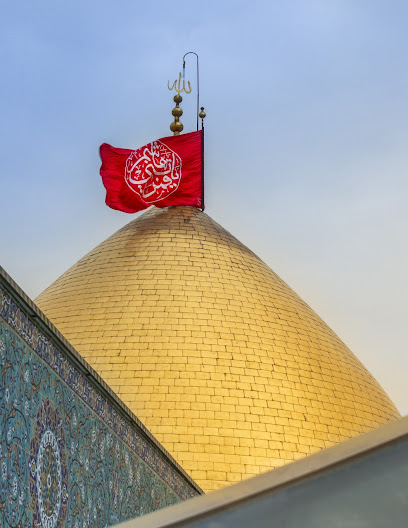
Islam memory Museum
Explore Islamic heritage at Karbala's Islam Memory Museum: A captivating journey through history, faith, and culture.
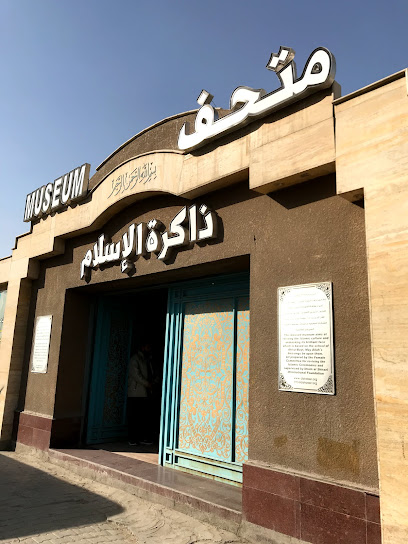
Al-Mukhayam Shrine (Khayam Al Hussain AS)
Reflect on the sacrifices of Karbala at this historically significant shrine and memorial to Imam Hussain's encampment.
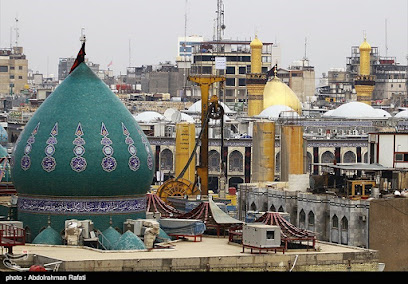
Imam Al Hussain a.s's Restaurant
Experience Iraqi hospitality with free, traditional meals near the Imam Hussein Shrine in Karbala.
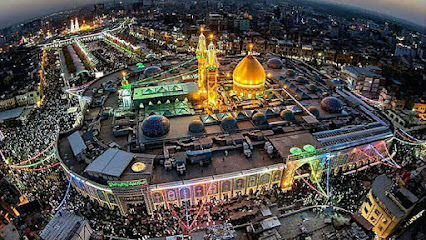
Unmissable attractions to see
Nawara tourist city property
Escape to Nawara Tourist City in Karbala: A green oasis offering relaxation, family fun, and a taste of local culture.
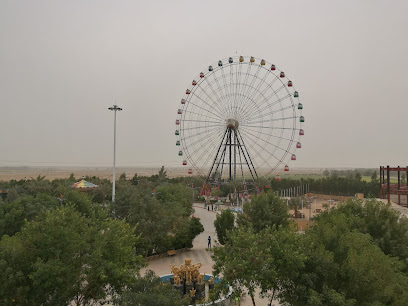
Hussein, the Great Park
Escape the city bustle at Hussein, the Great Park in Karbala, offering green spaces, play areas, and a tranquil retreat for families and individuals.
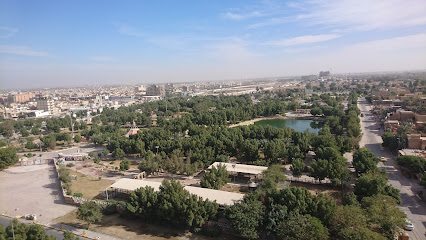
AL SINDBAD THEME
Experience thrilling rides and family-friendly entertainment at AL SINDBAD THEME in Karbala, the perfect destination for fun and unforgettable memories.
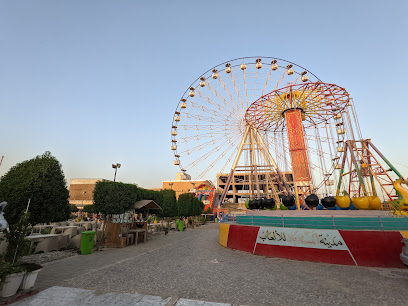
Islam memory Museum
Explore Islamic heritage at the Islam Memory Museum in Karbala, a journey through history, culture, and devotion.
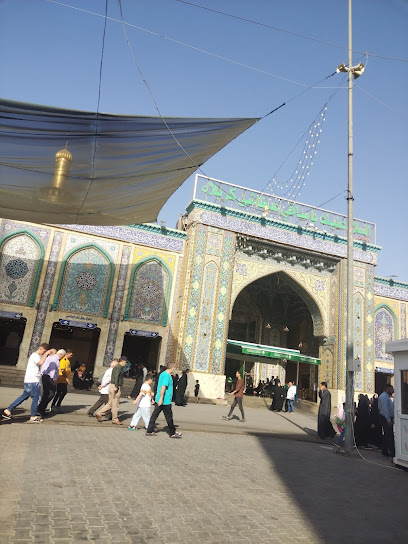
Alkafeel museum
Explore Islamic history and culture at the Al-Kafeel Museum in Karbala, home to rare manuscripts, ancient weapons, and cultural treasures.
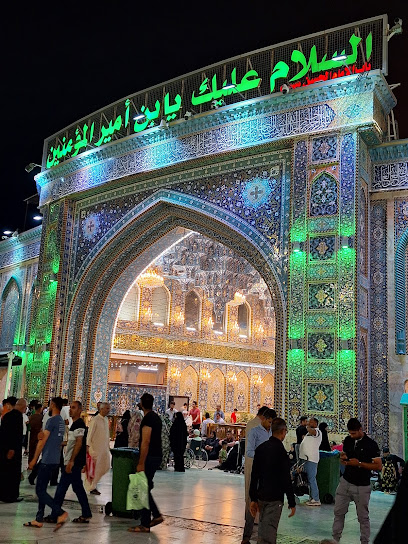
متنزه حي الموظفين
Discover a tranquil escape at Al-Muwazzafin Park in Karbala, a green oasis offering relaxation and cultural enrichment for all visitors.
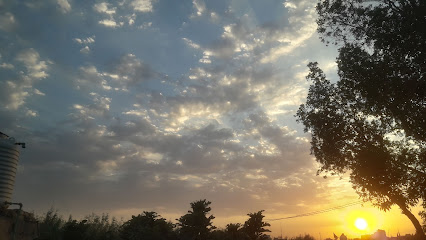
حديقة الواحة
Escape to tranquility in Karbala at Al-Waha Garden, a lush oasis offering relaxation and recreation for all ages.
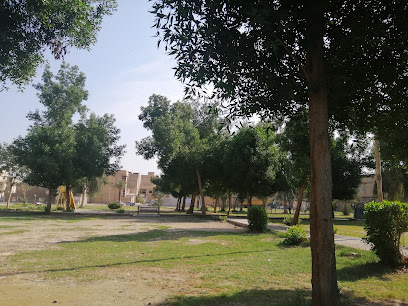
Al-Hussein Family Park
Find serenity in the heart of Karbala at Al-Hussein Family Park, a perfect escape for relaxation, recreation, and connection with nature.
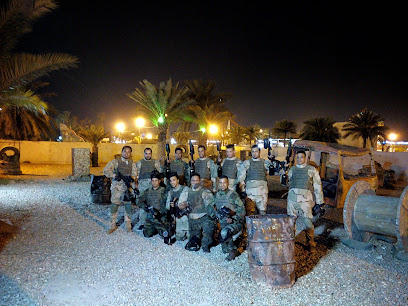
Triangular Garden
Explore the lush beauty of Triangular Garden in Karbala, a serene escape perfect for relaxation, photography, and enjoying nature's splendor.
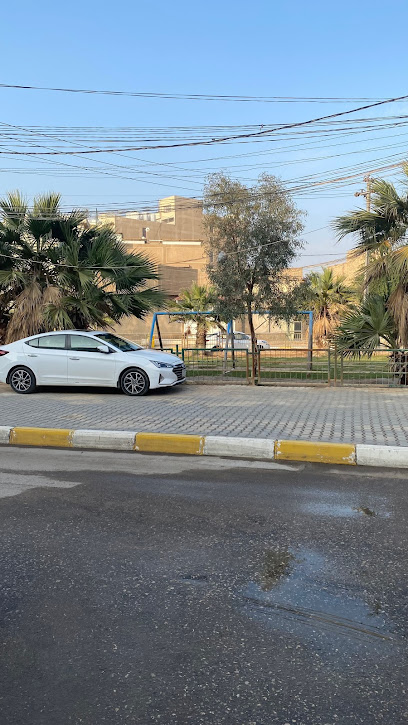
Al gamia square
Escape to Al Gamia Square, a peaceful garden oasis in Karbala, perfect for relaxation and cultural immersion amidst lush landscapes.
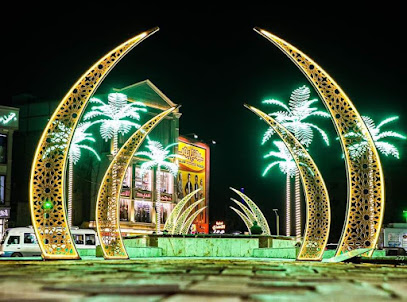
Coral Park
Explore the lush greenery and tranquil atmosphere of Coral Park in Karbala, a perfect retreat for relaxation and nature lovers.

حديقة الأريج
Escape to the tranquility of حديقة الأريج in Karbala. Enjoy lush greenery, vibrant flowers, and peaceful walking paths in this urban oasis.
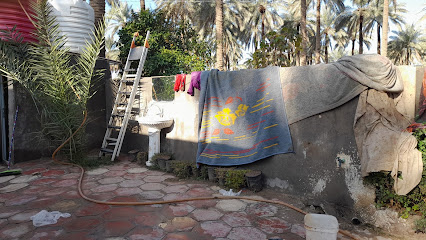
حديقة عامة
Discover the serenity of Karbala's Public Garden, a lush oasis perfect for relaxation and family outings amid the city's vibrant atmosphere.
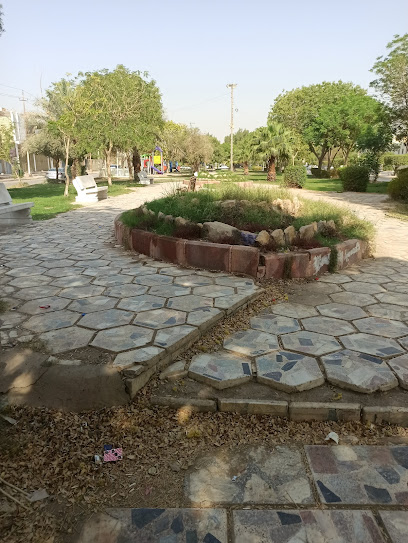
حديقة التعاون
Discover the tranquil beauty of Al-Taaon Park, a lush green escape in Karbala perfect for relaxation and cultural experiences.

حديقة النصر
Discover the tranquil beauty of Al-Nasir Garden in Karbala – a serene escape amidst vibrant flora and rich cultural heritage.
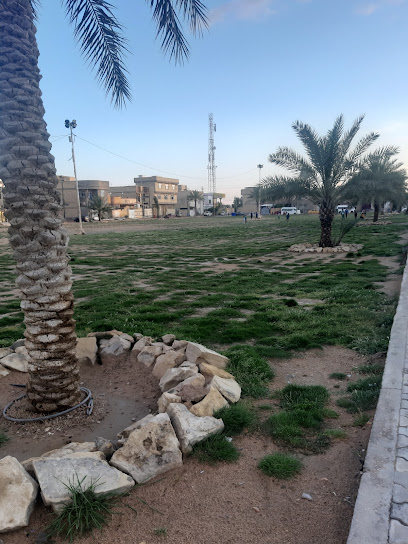
Essential places to dine
Kentucky House .karbala
Discover Kentucky House in Karbala: Where Fast Food Meets Local Flavor for an Unforgettable Dining Experience.
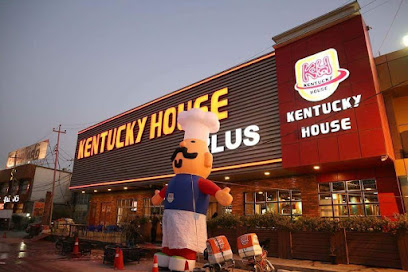
Khan mandi restaurant
Discover authentic Iraqi flavors at Khan Mandi Restaurant in Karbala—where tradition meets taste in every delicious bite.
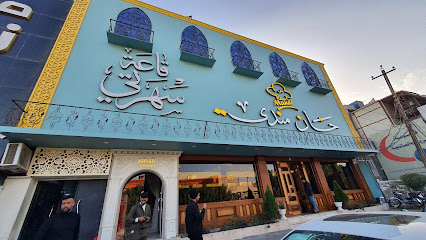
Al Dur Nasrawi Restaurant
Experience authentic Iraqi cuisine at Al Dur Nasrawi Restaurant in Karbala—where tradition meets flavor in every dish.
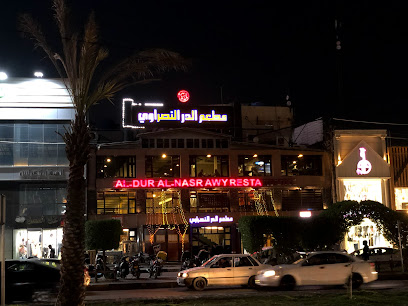
Food Time
Discover diverse fast-food delights at Food Time in Karbala – where local flavors meet international favorites!
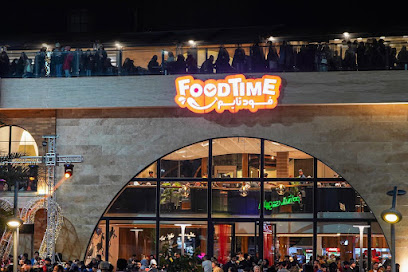
Damascene House Restaurant
Discover the authentic taste of Syria at Damascene House Restaurant in Karbala - a culinary gem serving traditional delights.
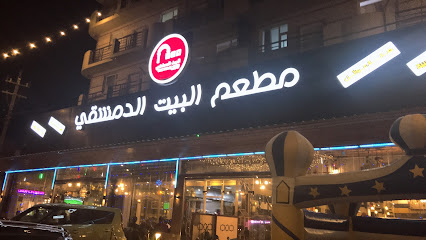
TURATH Restaurant
Experience authentic Iraqi flavors at TURATH Restaurant in Karbala - where tradition meets taste in every dish.
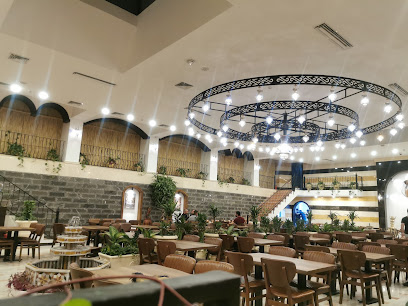
Food Fort Restaurant
Experience the rich flavors of Iraq at Food Fort Restaurant in Karbala—where tradition meets taste in every dish.
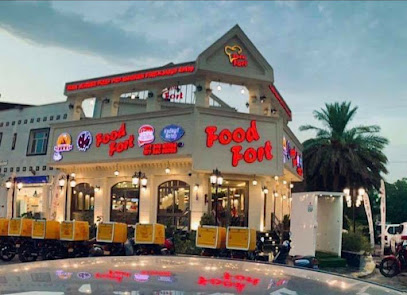
Rihanna Restaurant
Experience the flavors of Iraq at Rihanna Restaurant in Karbala – where culinary tradition meets modern dining.
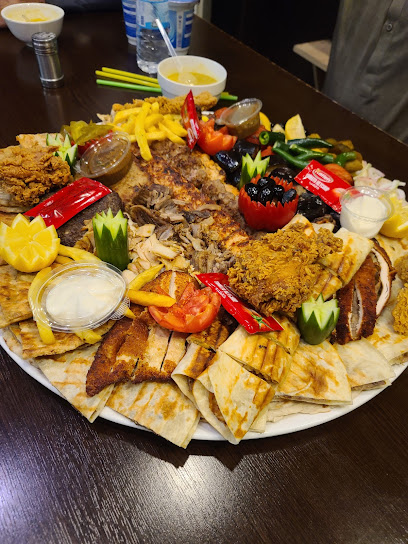
Ishtar restaurant
Experience authentic Iraqi cuisine at Ishtar Restaurant in Karbala—where tradition meets exquisite taste.
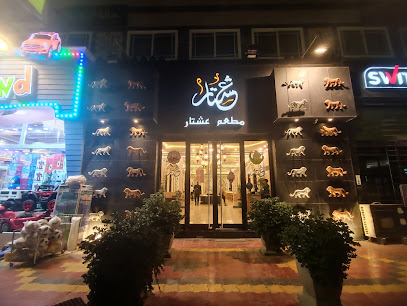
Razan Resturant
Discover the exquisite flavors of Iraq at Razan Restaurant in Karbala—where tradition meets modern culinary artistry.
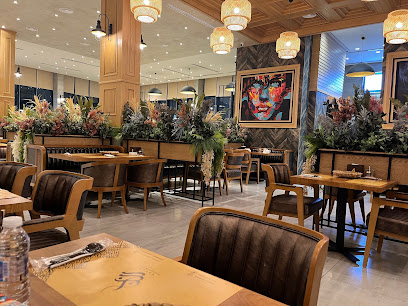
Chicken Story
Discover delicious chicken dishes in Karbala at Chicken Story – where tradition meets taste!
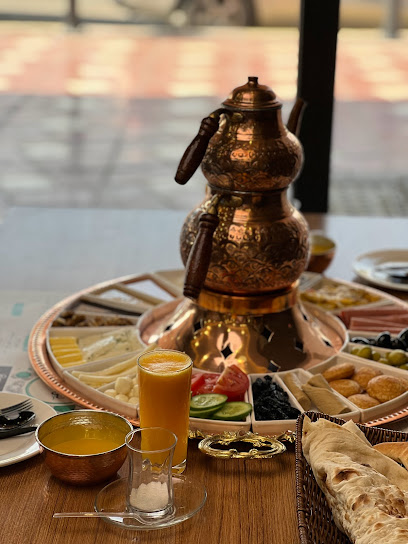
Milad 2 Kabab Restaurant
Experience authentic Iraqi barbecue at Milad 2 Kabab Restaurant in Karbala - where tradition meets flavor in every dish.
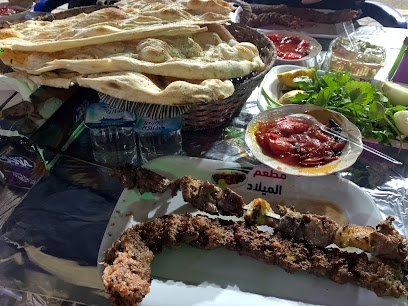
Chili House & Lee's
Experience authentic Iraqi flavors at Chili House & Lee's in Karbala—where culinary traditions meet modern dining.
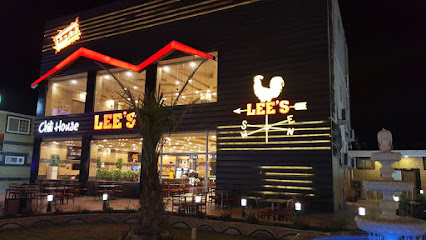
Chicken Hut restaurant
Discover authentic Iraqi flavors at Chicken Hut Restaurant in Karbala - an unforgettable hot pot dining experience awaits.
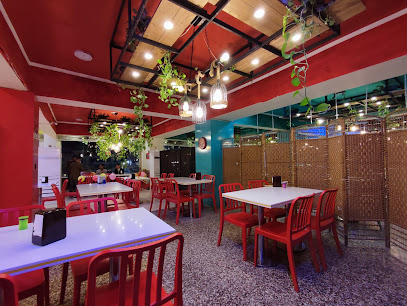
Genius Burger
Experience the unique flavors of Genius Burger in Karbala – where every bite tells a delicious story.
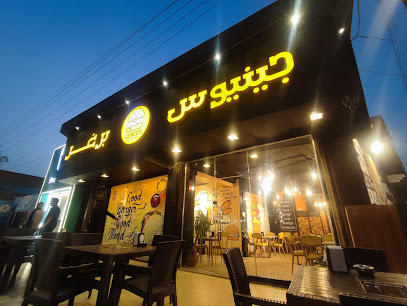
Markets, malls and hidden boutiques
Karbala Commercial Complex
Explore the Karbala Commercial Complex: A vibrant shopping destination for clothing and cultural treasures in the heart of Karbala.
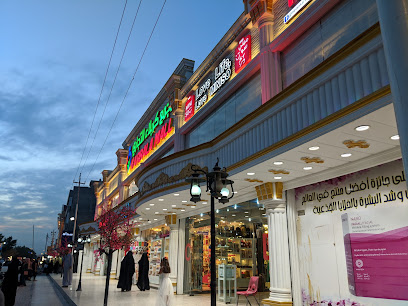
Janat Alfawakieh Market
Experience the vibrant culture and unique shopping at Janat Alfawakieh Market in Karbala, where local flavors and crafts await every visitor.
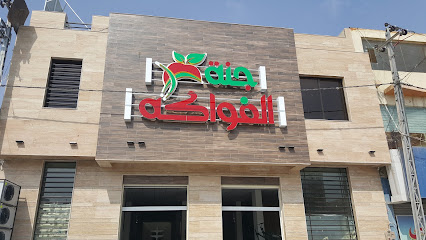
Havana Fashion
Explore the best in men's fashion at Havana Fashion, a vibrant shopping destination in Karbala, blending style with local culture.
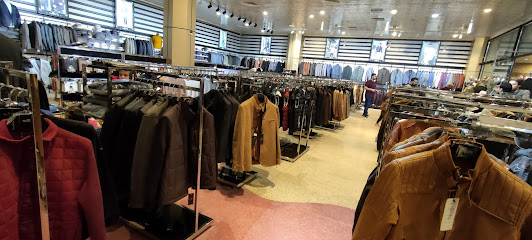
Zaytounah Supermarket
Experience the vibrant flavors and rich cultural heritage at Zaytounah Supermarket in Karbala, a shopping haven for authentic Middle Eastern products.
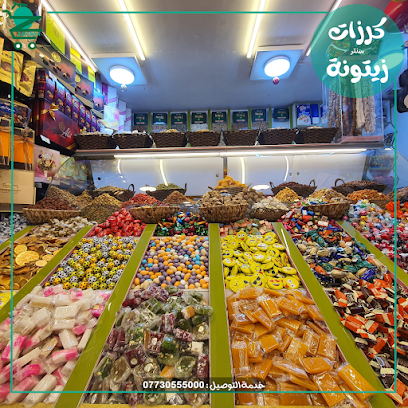
LC WAIKIKI
Explore the latest fashion trends at LC Waikiki in Karbala, a stylish clothing store offering a variety of apparel for the whole family.
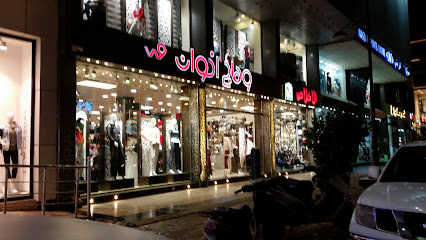
Waffir
Discover the vibrant shopping experience at Waffir, Karbala's top hypermarket featuring a wide range of local and international products.
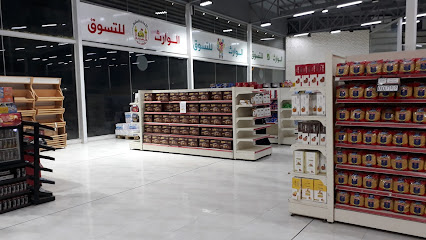
Brand hypermarket
Explore a diverse range of products at Brand Hypermarket, Karbala's vibrant shopping destination for tourists and locals alike.
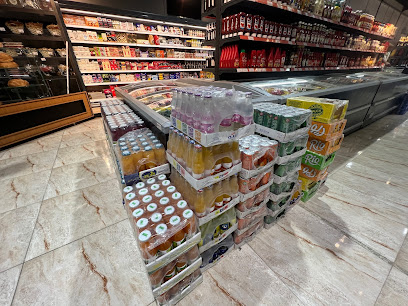
Plus 1
Discover the latest in men's fashion at Plus 1, a vibrant clothing store in the heart of Karbala, blending tradition with contemporary style.
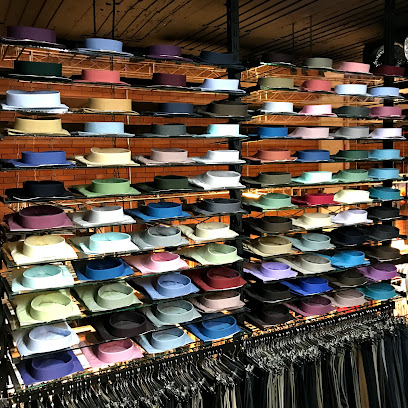
BK store
Explore BK Store in Karbala for exquisite perfumes, cosmetics, and stylish clothing in a vibrant shopping atmosphere.
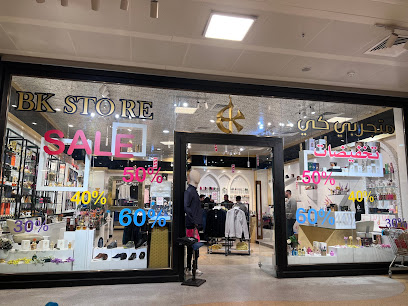
اسواق فلس ونص
Discover the essence of Karbala's fashion at اسواق فلس ونص, where local clothing styles meet vibrant shopping experiences.
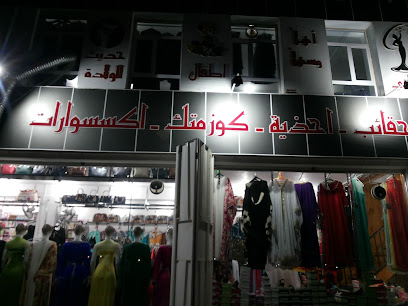
Incity karbala
Discover a blend of traditional and modern shopping at Incity Karbala, a vibrant mall in the heart of Iraq's holy city.
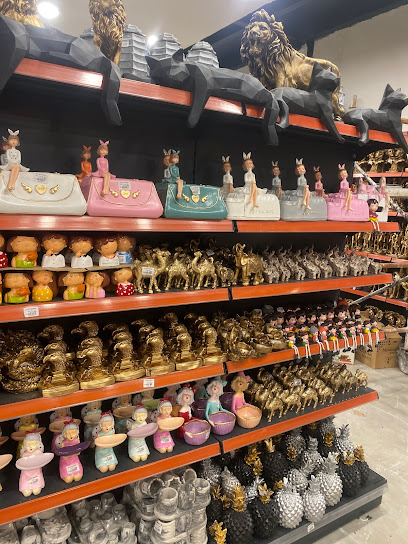
مجمع الجنائن
Explore مجمع الجنائن, the ultimate shopping destination in Karbala, blending modern retail with cultural charm for every tourist.
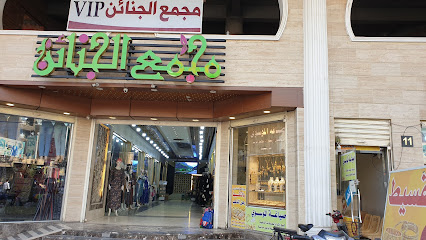
Shopping Shop - Karbala
Explore the vibrant Shopping Shop in Karbala for unique clothing styles that blend modern fashion with traditional Iraqi heritage.
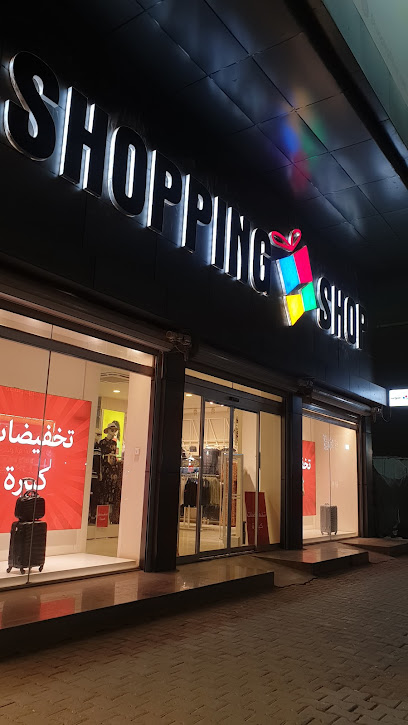
Raven Store
Discover a treasure trove of video games and accessories at Raven Store in Karbala, the ultimate gaming destination for enthusiasts.
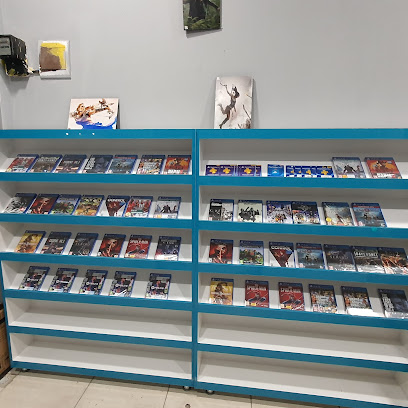
Shop
Discover the heart of Karbala through its vibrant shops, where tradition meets modernity in a unique shopping experience.
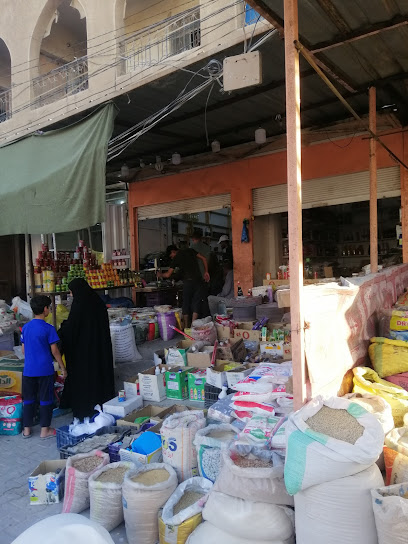
Essential bars & hidden hideouts
Chocolate Bar
Experience the sweet side of Karbala at the Chocolate Bar, a haven for chocolate lovers with irresistible treats and a cozy atmosphere.
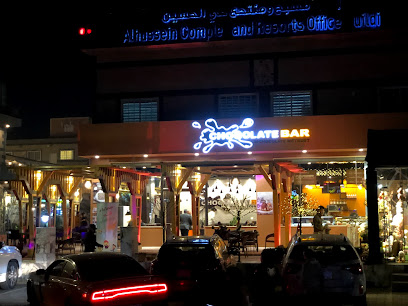
معرض جلال و جمال للسيراميك
Discover the artistry of handcrafted ceramics at Jalal & Jamal Ceramic Gallery in Karbala, where culture and craftsmanship meet.
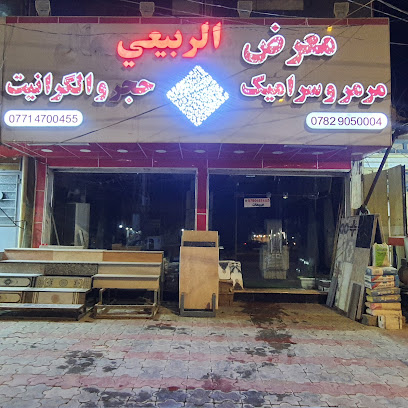
ون مليون | مول الحارث ONE MILLION
Discover shopping, dining, and entertainment at One Million Mall in Karbala – a vibrant destination that showcases local culture and modern conveniences.
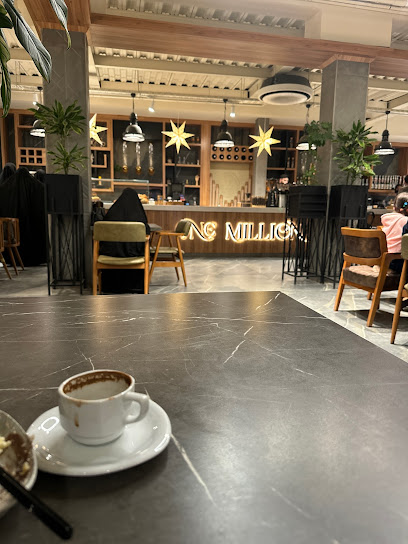
aswad jaleel
Experience the vibrant nightlife of Karbala at Aswad Jaleel, a bar offering a unique blend of local culture and refreshing beverages.

ابو احمدراضي
Experience the lively atmosphere at Abu Ahmad Razi, a vibrant bar in Karbala offering a unique blend of local flavor and social interaction.

عرق بعشيقه
Experience the vibrant nightlife of Karbala at عرق بعشيقه, where local flavors and friendly atmosphere come together.

ساحة جسر المشاة لوقوف السيارات
Experience the vibrant culture of Karbala at ساحة جسر المشاة لوقوف السيارات, a lively stand bar perfect for relaxation and socializing.
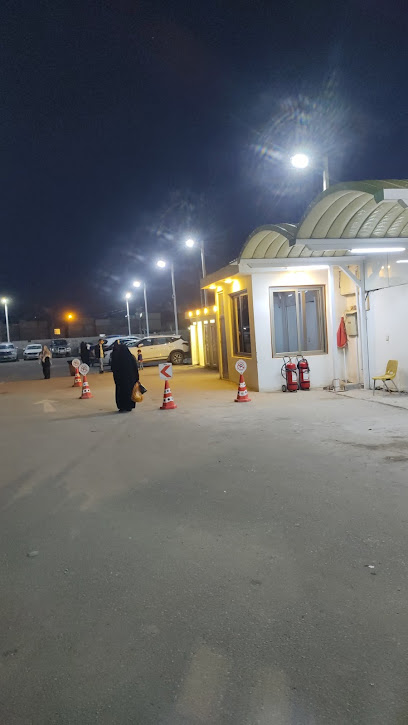
كربلاء
Discover the profound spirituality and vibrant culture of Karbala, a historic city that is a pilgrimage destination and a cultural treasure.

K G F
Discover the vibrant nightlife at K G F, a bar in Karbala offering a unique blend of local flavors and social ambiance.

رضاوي الخال
Experience the essence of Karbala at رضاوي الخال, where tradition meets flavor in a vibrant bar setting.

محمد غ
Discover the lively محمد غ bar in Karbala, where local culture meets a vibrant atmosphere for an unforgettable night out.

مهدي منتظر
Experience the enchanting melodies of Mahdi Montazer, a premier piano bar in Karbala, where music and elegance create unforgettable evenings.

جامع السلام
Experience the vibrant nightlife at جامع السلام in Karbala, a unique bar blending local culture and welcoming ambiance.

كراج السياره
Discover the vibrant nightlife at كراج السياره, a lively bar in Karbala offering a diverse drink selection and a welcoming atmosphere for all visitors.

Local Phrases
-
- Helloسلام
[salaam] - Goodbyeوداعاً
[wadaan] - Yesنعم
[naam] - Noلا
[laa] - Please/You're welcomeمن فضلك
[min fadlik] - Thank youشكراً
[shukran] - Excuse me/Sorryعذراً
[aathirann] - How are you?كيف حالك؟
[kayf halak?] - Fine. And you?بخير، وأنت؟
[bikhayr, wa ant?] - Do you speak English?هل تتحدث الإنجليزية؟
[hal tatahadath al'ingliziyya?] - I don't understandأنا لا أفهم
[ana la afham]
- Helloسلام
-
- I'd like to see the menu, pleaseأريد أن أرى القائمة، من فضلك
[urid an ara alqaima, min fadlik] - I don't eat meatأنا لا آكل اللحم
[ana la aakul allahm] - Cheers!صحتين
[sahitin] - I would like to pay, pleaseأود أن أدفع، من فضلك
[awad an adfae, min fadlik]
- I'd like to see the menu, pleaseأريد أن أرى القائمة، من فضلك
-
- Help!النجدة!
[alnajda!] - Go away!اذهب بعيداً!
[idhab baedan!] - Call the Police!اتصل بالشرطة!
[itassil bialshurta!] - Call a doctor!اتصل بطبيب!
[itassil batabib!] - I'm lostلقد ضللت الطريق
[lqad dalalt altariq] - I'm illأنا مريض
[ana mareed]
- Help!النجدة!
-
- I'd like to buy...أريد أن أشتري...
[urid an ashtari...] - I'm just lookingأنا فقط أتفرج
[ana faqat atfarij] - How much is it?كم ثمنه؟
[kam thamnuhu?] - That's too expensiveهذا غالي جداً
[hatha ghali jiddan] - Can you lower the price?هل يمكنك خفض السعر؟
[hal yumkinuk kafd alsiar?]
- I'd like to buy...أريد أن أشتري...
-
- What time is it?كم الساعة؟
[kam alsaa'a?] - It's one o'clockالساعة الواحدة
[alsaa'a alwahida] - Half past (10)النصف بعد (عشرة)
[alnusf baed (ashara)] - Morningصباح
[sabah] - Afternoonبعد الظهر
[baed alzuhur] - Eveningمساء
[masa] - Yesterdayأمس
[ams] - Todayاليوم
[alyawm] - Tomorrowغداً
[ghadan] - 1واحد
[wahid] - 2اثنان
[ithnan] - 3ثلاثة
[thalatha] - 4أربعة
[arba'a] - 5خمسة
[khamsa] - 6ستة
[sitta] - 7سبعة
[sab'a] - 8ثمانية
[thamaniyya] - 9تسعة
[tis'a] - 10عشرة
[ashara]
- What time is it?كم الساعة؟
-
- Where's a/the...?أين الـ...؟
[ayn al...?] - What's the address?ما هو العنوان؟
[ma hu al'ainwan?] - Can you show me (on the map)?هل يمكنك أن تريني (على الخريطة)؟
[hal yumkinuk an tareeni (ala alkharyta)?] - When's the next (bus)?متى القادم (الحافلة)؟
[mata alqadim (alhafilah)?] - A ticket (to ....)تذكرة (إلى ...)
[tadhkirah (ila ...)]
- Where's a/the...?أين الـ...؟
History of Karbala
-
The Battle of Karbala, fought on October 10, 680 AD, is one of the most significant events in Islamic history. This battle saw the martyrdom of Husayn ibn Ali, the grandson of the Prophet Muhammad, and his 72 companions at the hands of the forces of Yazid I, the Umayyad caliph. The battle is commemorated annually during the holy month of Muharram, particularly on the day of Ashura, and holds immense religious significance for Shia Muslims around the world.
-
The Shrine of Imam Husayn is one of the holiest sites in Shia Islam. Located in the heart of Karbala, the shrine is the final resting place of Husayn ibn Ali. The structure has been renovated and expanded numerous times throughout history, drawing millions of pilgrims each year. The intricate architecture, adorned with gold and precious stones, reflects the deep reverence held for Husayn within the Shia community.
-
Just a short distance from the Shrine of Imam Husayn lies the Shrine of Al-Abbas, dedicated to Abbas ibn Ali, Husayn's half-brother and loyal standard-bearer. Abbas is celebrated for his bravery and loyalty during the Battle of Karbala. His shrine, like that of Husayn's, is a major pilgrimage destination and features stunning Islamic artistry and architecture.
-
The Arbaeen Pilgrimage, marking the 40th day after the martyrdom of Husayn ibn Ali, is one of the largest religious gatherings in the world. Millions of pilgrims walk hundreds of miles from cities across Iraq, and even neighboring countries, to reach Karbala. The journey, known as the 'Ziyarat Arbaeen', symbolizes devotion, unity, and the enduring legacy of Husayn’s sacrifice.
-
Karbala has seen various rulers and influences throughout its history. During the Ottoman Empire, the city was a key administrative center, and many structures from that era still stand today. Following World War I, Karbala came under British control as part of the mandate over Mesopotamia. The city played an important role in the Iraqi revolt against British occupation in 1920, reflecting its long-standing spirit of resistance and resilience.
-
In contemporary times, Karbala has seen significant development, especially after the fall of Saddam Hussein's regime in 2003. The city has undergone extensive reconstruction, with improved infrastructure to accommodate the growing number of pilgrims. Despite periods of political instability and conflict, Karbala remains a vibrant center of culture, religion, and history in Iraq.
Karbala Essentials
-
Karbala is located in central Iraq and is most easily accessible from Baghdad, which is approximately 100 kilometers to the north. The nearest international airport is Baghdad International Airport (BGW). From the airport, you can take a taxi or a private car to Karbala. Another option is to travel by bus; several bus companies operate routes between Baghdad and Karbala. The journey typically takes around 1.5 to 2 hours by road.
-
Once in Karbala, getting around is relatively straightforward. The city is well-served by local taxis, which are a convenient mode of transportation. Public buses and minibuses (known locally as 'coasters') also operate within the city and connect to nearby areas. For those who prefer private transportation, car rentals are available, though driving in the city can be challenging due to traffic congestion and local driving habits.
-
The official currency in Iraq is the Iraqi Dinar (IQD). While credit cards are accepted in some hotels, restaurants, and larger shops, it is advisable to carry cash, especially for smaller purchases and in more traditional markets. ATMs are available in Karbala, but it is a good idea to withdraw sufficient cash before traveling to ensure you have enough funds for your visit.
-
Karbala is generally considered safe for tourists, especially during religious pilgrimages when security is heightened. However, it is important to stay vigilant and take standard precautions. Avoid walking alone at night in unfamiliar areas and keep an eye on your belongings in crowded places. Some neighborhoods may have higher crime rates targeting tourists, so it is advisable to seek local advice on which areas to avoid.
-
In case of emergency, dial 115 for police assistance and 122 for medical emergencies. Karbala has several hospitals and medical facilities available. It is recommended to have travel insurance that covers medical emergencies. For minor health issues, pharmacies are available across the city where you can purchase over-the-counter medications.
-
Fashion: Do dress modestly; women should wear a headscarf and cover their arms and legs. Men should avoid wearing shorts. Religion: Do respect local customs and religious practices. Always cover your head when entering religious sites. Public Transport: Do be respectful and give up your seat to elderly passengers. Don't eat or drink on public transport. Greetings: Do greet people with 'As-Salamu Alaikum' and a handshake. Eating & Drinking: Do try local cuisine and accept food offerings graciously. Don't refuse hospitality, as it is considered impolite.
-
To experience Karbala like a local, visit the traditional markets (souqs) where you can buy fresh produce and traditional Iraqi goods. Engage with locals, as they are often friendly and willing to share stories about the city's history and culture. Don't miss visiting the Imam Hussein Shrine and the Al-Abbas Shrine, which are central to the city's religious significance. For a unique experience, attend a local religious ceremony or festival if your visit coincides with one.
Trending Landmark in Karbala
-
Holy Shrine Of Imam Hossain
-
Holy Shrine Of Abu Fadhl Al-Abbas
-
Alqamae Tributary Of Furat
-
Nawaris Karbala Amusement park
-
Nawara tourist city property
-
Toot Fresh - Karbala
-
Hussein, the Great Park
-
AL SINDBAD THEME
-
White arch
-
قطارة الامام علي ع
-
Al-Ukhaidir Fortress
-
Mosque Imam Muhammad al-Jawad
-
Islam memory Museum
-
Al-Mukhayam Shrine (Khayam Al Hussain AS)
-
Imam Al Hussain a.s's Restaurant
Nearby Cities to Karbala
-
Things To Do in Najaf
-
Things To Do in Baghdad
-
Things To Do in Amara
-
Things To Do in Kirkuk
-
Things To Do in Arar
-
Things To Do in Sulaymaniyah
-
Things To Do in Erbil
-
Things To Do in Mosul
-
Things To Do in Basra
-
Things To Do in Sakakah
-
Things To Do in Dohuk
-
Things To Do in Jahra
-
Things To Do in Kuwait City
-
Things To Do in Hawalli
-
Things To Do in Farwaniya







